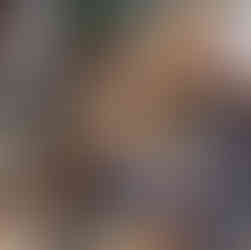Liberia Through the Lens of Time: Lost Tapes & Talks
- luisaschneider8
- Mar 15, 2025
- 3 min read
Updated: Mar 17, 2025
A Cultural Screening at Stella Maris Polytechnic University (Liberia), Bridging Past and Present
From February 9th to 19th, our research team embarked on a journey to Liberia for its final team meeting, a milestone that brought our four-year research project full circle. This trip symbolized the culmination of our efforts to reintroduce the digitized Liberian Broadcasting System (LBS) tapes into the public eye.
But this journey was about far more than just sharing local TV programs from the 1980s and 1990s—it was about fostering meaningful dialogue and reintegrating these tapes into Liberian society and its mediascape. To achieve this, we designed and co-organized a series of memory work, creating an open space for reflection and discussion. These sessions underscored the importance of preserving these materials, not merely as historical artifacts, but as vital bridges to the past, connecting generations and reclaiming a shared cultural heritage.
The centerpiece of our trip was the screening event Liberia through the Lens of Time: Lost Tapes & Talks, held on February 14th at Stella Maris Polytechnic University. This event was the culmination of meticulous overseas preparations and a collaborative effort with Artina Michelle, a talented Liberian director of photography based in Atlanta. Renowned for her work on projects like the short film featuring the surfing communities in Robertsport, Liberia, Artina infused the screening and discussions with her unique perspective as both a media professional and a member of the young Liberian Diaspora. With the invaluable support of Tanneh Kawee, who spearheaded the printing and distribution of promotional materials, we successfully drew a vibrant and diverse audience, ranging from students and media professionals to engaged community members.
At the event, we unveiled a captivating compilation of historical video footage from the digitized LBS tape titled Back to the Soil, meticulously curated by Dr. Cassandra Mark-Thiesen. This powerful visual narrative transports viewers to the late 1980s, capturing a transformative nationwide campaign led by then-President Samuel Kanyon Doe, who came to power in 1980 and was later elected president in 1985, serving until 1990. The campaign called on Liberians to reconnect with their roots and embrace sustainable agriculture as a path to national self-reliance. The footage vividly portrays agricultural cooperatives, vibrant community gatherings, and the rhythmic, soul-stirring dances of the Liberian Cultural Troupe.
Alongside this, Artina facilitated of a second, evocative film Mr. President, We Are Still Here, a government-commissioned work by African American filmmaker Dan Moore from the 1970s. This panoramic film, brimming with historical and cultural depth, offers a poignant window into Liberia’s past. It artfully weaves together the voices of everyday Liberians with the visionary leadership of the time, including then-incumbent President William R. Tolbert, who served as president of the country from 1971 to 1980. Through its vivid storytelling and striking imagery, the film not only preserves a critical chapter of Liberia’s history but also invites reflection on the enduring spirit of its people.
The responses from the diverse audience were nothing short of inspiring, igniting a profound transgenerational dialogue. For those who lived through the era before the civil wars (1989–1996; 1999–2003), the archival materials were a portal to the past, evoking a deep sense of nostalgia for what many fondly call the “Normal Day”—a time of relative peace and stability that stood in sharp contrast to the turmoil that followed. For the younger generation of students, these materials became a powerful catalyst, inspiring them to reconnect with and reclaim a history that often feels distant. This intergenerational exchange highlights the transformative power of public access to historical records, bridging the gap between past and present, and ensuring that cultural knowledge and identity are preserved and passed on.
"From the videos, the way Liberians used to dress in those days, is quite different from the modern days now. From the 1970s, 1980s, and 1990s we had a different culture than what we have now."
Remarks by a student
A special highlight was the attendance of Hawa Andrews Collins, a Liberian media icon, who presented and produced the Children’s Hour and Heritage Program alongside Douhgba Karanda. Their contributions to locally produced content not only educated and entertained Liberians but also shaped Liberia’s media landscape and history.
Even though the screening event was the last step in our research project, it’s only the beginning of a larger conversation. Stay tuned for more content on other events from our trip, including the live broadcasting of the tapes and the research group’s meeting with LBS director Eugene Fahngon, as well as other media presenters and professionals such as Mildred Dean, Fannie Cole-Weefur, and Korkulor Flomo, coming soon. Also, check out the community archive of the screening, WatchShow LIB.
We are deeply grateful to Stella Maris for hosting us, providing technical support and making this a memorable event.
Post written by Luisa Schneider




















Comments